18 Words That English Learners Misuse
Even if you’ve studied English for years, you’re probably using some words incorrectly.
It’s not the end of the world. You’re not a native speaker, and no one expects (or shouldn’t expect) you to speak perfectly.
But you should always strive to get better. After all, the fewer mistakes you make, the better you’ll communicate.
Here are 18 tricky words you should be careful with. When you finish reading the article, try this practice exercise.
1. salary
How you misuse it: You use salary to talk about what someone gets paid per hour.
We use salary to talk about a regular, fixed payment that someone receives, which is typically expressed as the annual amount.
We do not use salary to talk what people get paid per hour. Instead we use hourly rate, hourly wage, or simply mention an amount per hour.
Correct usage:
“Mick turned down the job because the salary was only $30,000 per year.”
“My first job was at McDonald’s in 1997. My hourly wage was $5.50.”
“Some attorneys charge really high hourly rates.”
“How much are you making per hour at your new job?”
Incorrect usage:
“I heard you picked up a job working as a waiter on weekends. What is your salary?”
“Tom negotiated a salary of $17.50 per hour.”

2. stingy
How you misuse it: You use stingy when you mean cheap.
We normally use stingy as the opposite of generous. We use the word to talk about people who are unwilling to share or give things to other people. It is not the same as cheap.
We normally use cheap to talk about people who are unwilling to spend money.
Correct usage:
“I’ve never met anyone so stingy in my entire life. He’s worth millions of dollars and has never donated a dime to charity.”
“Paul is the cheapest person I know. He never spends money on anything.”
Incorrect usage:
“I can’t believe you don’t have cable. You’re so stingy.”
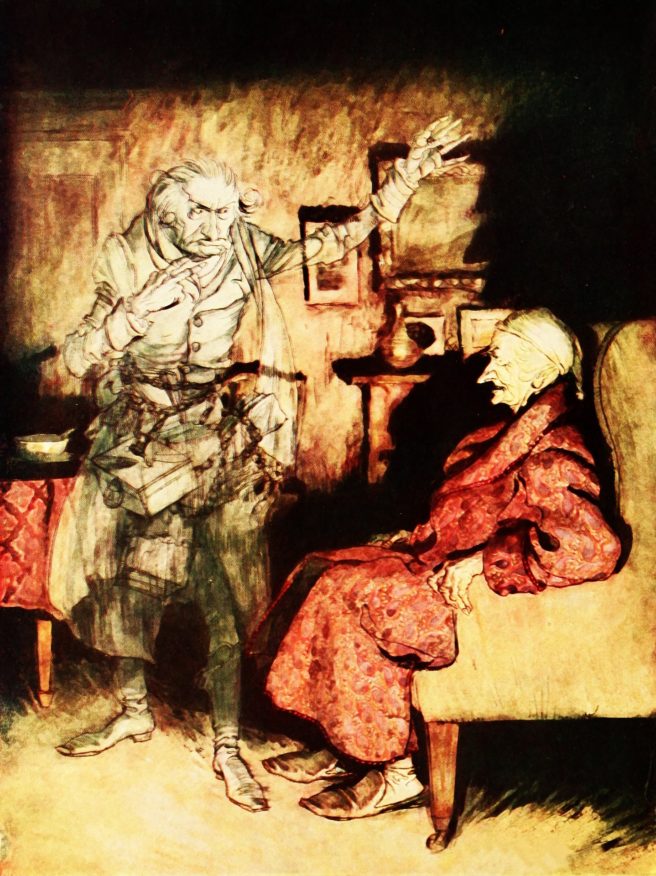
3. prefer
How you misuse it: You use it to talk about a specific choice.
We use would prefer (formal) or would rather (less formal) to talk about specific choices.
We use prefer to talk about something that is generally true.
Correct usage:
“I generally prefer sushi to pizza.”
“What would you rather get for lunch today, sushi or pizza?”
“I’d prefer pizza today. I’ve already had sushi several times this week.”
Incorrect usage:
“I had sushi yesterday, so today I prefer to eat pizza.”
“Normally I like watching TV, but right now I prefer to do something else.”

4. grow up
How you misuse it: You use grow up when you mean grow.
To grow up means to become an adult or become more mature.
To grow means to get bigger in size.
Correct usage:
“My daughter is growing up so fast. I can’t believe she’s two already.”
“You need to grow up. You’re so immature.”
“Uber has grown rapidly since 2015.”
Incorrect usage:
“Our company has grown up a lot in the last few years. We have 120 employees now.”

5. custom
How you misuse it: You use it to describe your personal habits and actions.
We use custom to talk about behaviors that are specific to a particular society, place, or culture.
We don’t use custom to talk about personal habits or actions.
Correct usage:
“In many parts of Latin America, men and women greet each other by kissing on the cheek. Here we do not have that custom.”
“In high school, we learned about the cultures and customs of ancient societies.”
Incorrect usage:
“Some people exercise before work, but I don’t have that custom.”
“My sister has some strange customs.”
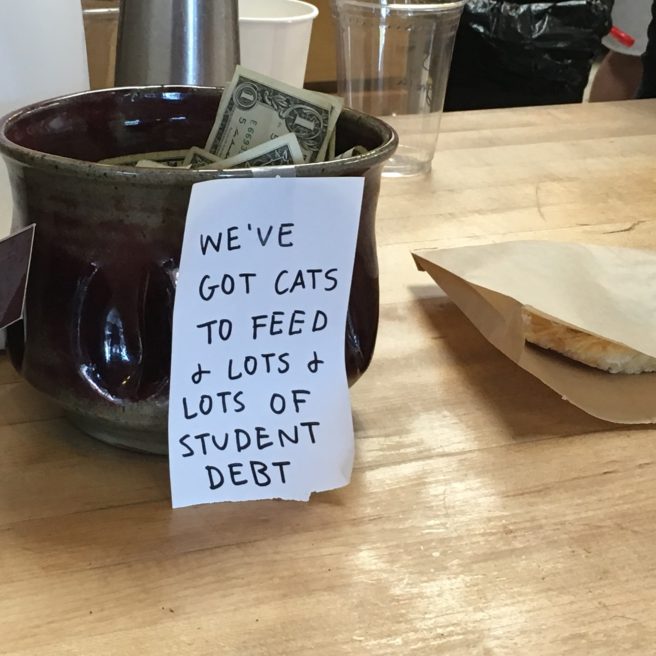
6. career
How you misuse it: You use it to talk about a university student’s main area of study or to talk about someone’s professional field.
We can use career to talk about “an occupation undertaken for a significant period of a person’s life and with opportunities for progress” or “the progress through history of an institution, organization, etc.” (Oxford Dictionaries)
We use major to talk about a university student’s main area of study.
We use field or profession to talk about a person’s professional field.
Correct usage:
“I started my career as an intern. Now I’m the CEO.”
“Kahla has worked a couple of jobs, but she hasn’t really ever had a career.”
Incorrect usage:
“My career was really difficult. I almost didn’t graduate.”
“I use LinkedIn to connect with people who are in my career.”

7. nanny
How you misuse it: You use nanny when you mean babysitter.
A nanny is someone employed to regularly care for children in a household. Nannies normally have specialized training in childcare and/or child development.
A babysitter is someone who watches children in exchange for money. Babysitters aren’t officially employed by a family and only occasionally care for children.
Correct usage:
“I had a nanny when I was a child. She often picked me up from school and cooked dinner for us.”
“Caroline worked as a nanny for a few years. She was a big part of those kids’ lives.”
Incorrect usage:
“My wife and I want to go out this weekend. We’re trying to find a nanny for Friday night.”
“I occasionally worked as a nanny when I was 14 years old.”

8. staff
How you misuse it: You use staff when you mean staff member or employee.
We generally use staff to refer to the group of people employed by a particular organization.
If we are talking about one person, we normally use staff member, or employee, and not a staff.
Similarly, we would say “two staff members,” or “two employees,” and not two staffs.
Correct usage:
“Our staff is comprised of 35 bilingual professionals.”
“Please let our staff know if you need anything.”
“Are you a staff member or a guest at this resort?”
Incorrect usage:
“I used to be a staff here at the college.”
“We should probably hire three more staffs this year.”

9. visit (verb)
How you misuse it: You use visit when you mean go to.
We mostly use visit to talk about (a) going somewhere in order to spend time with someone socially, (b) staying somewhere as a tourist, (c) accessing a website, or (d) going to see someone for a specific purpose (such as giving or receiving official advice). (adapted from Oxford Dictionaries)
If none of the above apply, then visit is incorrect, and go to is a better choice.
Correct usage:
“I try to visit my grandmother once a week.”
“We’re thinking of visiting Thailand next summer.”
“No wonder you have a computer virus. You’ve been visiting shady websites.”
“I have to go to the supermarket after work today.”
Incorrect usage:
“I have to visit the grocery store on my way home from work.”
“Are you going to visit the post office? We need stamps.”

10. approach (verb)
How you misuse it: You use approach instead of a phrasal verb, and you sound extremely formal.
We can use approach to communicate that someone is moving nearer to something/someone.
But we normally only use approach this way if:
(a) we are in a very formal setting
(b) something important or relevant happens next
If neither (a) nor (b) applies, then we normally use one of these phrasal verbs instead: go up to, go over to, walk up to, walk over to, come up to, come over to.
Correct usage:
A strange man approached me and asked me if I wanted to buy a gun.
“The judge asked the defendant to approach the bench.”
“I walked over to the vending machine and bought a Coke.“
“John came over to my desk to offer me a cookie.”
Incorrect usage:
“I approached the vending machine and got a soda.”
“Mark approached my desk and offered me a cookie.”

11. foreigner
How you misuse it: You don’t realize that the word often has a negative connotation.
There is a a debate about whether foreigner is pejorative, but it seems that most people feel that foreigner has a negative connotation.
Words and expressions that have a more positive connotation include tourist, visitor, and people from other countries. To ensure we aren’t offending anyone, we often use one of these terms instead of foreigner.
Correct usage:
“Scott blamed foreigners for the lack of available jobs here.”
“The best part about my job is that I get to meet people from other countries.”
“Many visitors are surprised by how cold Central Florida can be in January.”
Incorrect usage:
“The best part of being an English teacher is meeting foreigners and learning about their culture.”

12. postpone
How you misuse it: You use postpone without an object, or you use it to talk about delaying an action (rather than an event).
We use postpone with an object to talk about delaying an event.
We use procrastinate without an object to communicate that we are delaying an action.
Correct usage:
“Our supervisor postponed the meeting. It’s going to be on Friday at 10:30.”
“If today is a bad day for the conference call, why don’t you postpone it?”
“I have a paper to write for my Economics class, but I keep procrastinating.”
Incorrect usage:
“We shouldn’t have the meeting today. Let’s postpone.”
“I have a paper to write for my Economics class, but I keep postponing.”

13. assassinate
How you misuse it: You use assassinate when you mean murder or kill.
We normally use assassinate to talk about the act of murdering an important person for political or religious reasons. (Oxford Dictionaries)
If the victim was not an important person killed for political or religious reasons, then we use the verbs murder (for a premeditated, unlawful act) or kill.
Correct usage:
“John F. Kennedy was assassinated in Dallas, Texas on November 22, 1963.”
“The victim was murdered by one of his coworkers. There was an ongoing altercation at work that came to a head over the weekend.”
Incorrect usage:
“The victim’s son said he could never forgive the killer for assassinating his father.”
“During the riots, we stayed indoors for fear of being assassinated.”

14. client
How you misuse it: You use client when you mean customer.
A client is someone who is provided a professional service. Lawyers, financial advisers, and CPAs (certified public accountants) have clients.
A customer is someone who is provided goods and/or services in exchange for money.
Correct usage:
“There were so many customers at Walmart today that I could hardly move.”
“Many of our law firm’s clients are from Florida.”
Incorrect usage:
“I go to that restaurant every day. I’m their best client.”

15. turn on
How you misuse it: You overuse it and form incorrect collocations.
We use turn on/turn off to talk about making a piece of equipment start working by pressing a button or moving a switch. (MacMillan Dictionary)
We do not turn on a car, turn on a candle, or turn on a cigarette.
We start cars, light candles, and light/light up cigarettes.
Correct usage:
“Please light the candle.”
“I started the car and drove away as fast as I could.”
“The first thing I do at work is turn on my computer and check my email.”
Incorrect usage:
“If the power goes out, we can always turn on some candles.”
“Sorry I was late. My car wouldn’t turn on.”
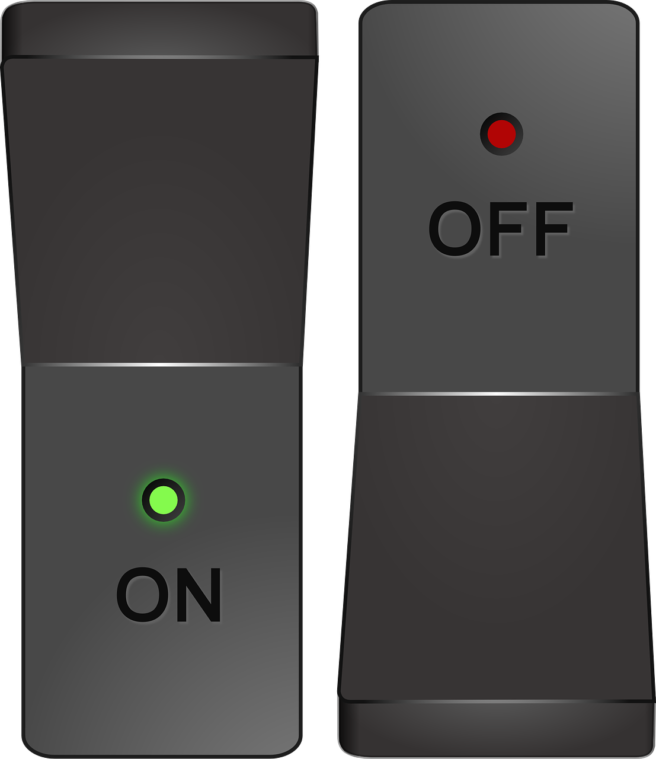
16. the flu
How you misuse it: You use the flu when you mean a cold.
The flu (short for influenza) involves fever, muscle aches, and breathing problems. It is much more serious than a cold, and can even be fatal.
A cold typically involves congestion, sneezing, a sore throat, and coughing. It is less serious than the flu and normally does not involve a fever.
Typically, if you have the flu you stay home from work or school, but if you have a cold you tough it out and go about your daily routine.
Correct usage:
“It was hard to stay motivated at work today. I’ve had a bad cold for a few days.”
“If you get the flu, make sure you get plenty of rest, drink plenty of fluids, and go to the doctor if you have a high fever.”
Incorrect usage:
“My child caught the flu and has been sneezing and coughing all day.”
“This is the worst cold I’ve ever had. I’ve had a high fever for two days and terrible muscle aches.”

17. fired
How you misuse it: You use fired when you mean laid off.
We use fired to communicate that someone lost their job due to unsatisfactory performance.
We use laid off to communicate that someone lost their job due to corporate restructuring or cost-cutting measures, or if the company simply no longer needed that person’s services.
Correct usage:
“One of our customer service representatives was persistently rude to customers. He was fired after three weeks on the job.”
“Our company moved its manufacturing operations overseas and many of our plant workers were laid off.”
Incorrect usage:
“We had several years without turning a profit, so we were forced to downsize and fire hundreds of employees.”
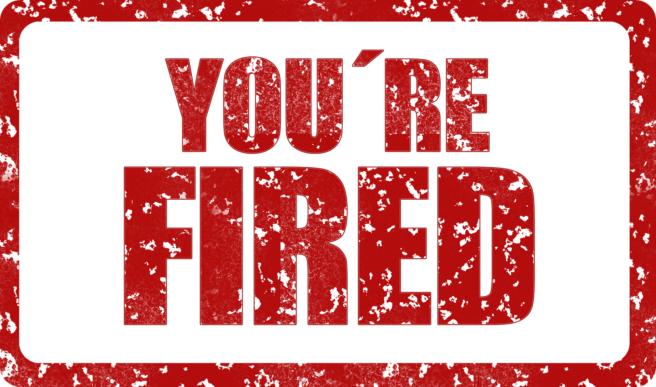
18. mall
How you misuse it: You use mall when you mean shopping center, strip mall, or shopping plaza.
This is a mall:

And this is a shopping center (also called a strip mall or shopping plaza):
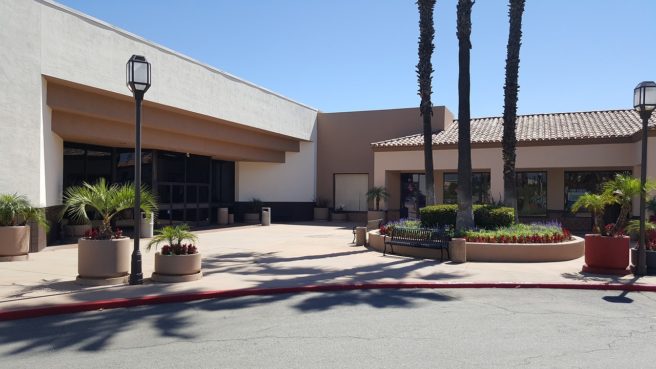
A mall normally does not have an external entrance for each store. Malls are large buildings which contains many retail stores and an area for consumers to walk from store to store. Only the large stores (called anchor stores) typically have external entrances. Malls typically have an indoor food court in the center of the mall.
A strip mall, shopping center, or shopping plaza is a series of stores that are arranged in a row with a sidewalk in front. Each store has a separate external entrance.
Correct usage:
“When you pass the shopping center with the Chinese restaurant and convenience store, make a right. My house is the third house on the left.”
“A new mall just opened with over 60 stores and a giant food court.”
Incorrect usage:
“I walked to the mall near my neighborhood. I dropped off my dry cleaning and bought groceries at the supermarket.”
.
English is tricky and it’s easy to misuse words.
Here are some tips for reducing these mistakes:
• Don’t ever assume that two words are exactly the same. We usually have more than one word for a reason. Ask somebody (or google) how the words are different.
• If you have English-speaking friends, ask them to correct you when you use words incorrectly.
• Read as much as you can. It’s a great way to increase your vocabulary and gain a better understanding of the subtle differences between words.




